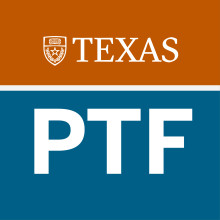Individual Fellow Initiatives

Disability Justice as Pedagogical Practice
Within social work curriculum, the topic of disability is either explicitly absent or medicalized. The lack of a rich understanding of disability as a cultural experience that intersects with other cultural experiences is concerning given our ethical guidelines of cultural competence and equity. Additionally, not only are students excluded via this omission, but so are faculty, staff, and social workers working in the field. Approximately a quarter of the population identifies as having a disability, yet our curriculum barely acknowledges their experiences.

Building Rigorously Compassionate Syllabi: Fostering Individual Accountability and Community Care
Our project seeks to revitalize the syllabus document as a tool of inclusion. We are interested in making visible the “hidden curriculum” with which students often struggle. The syllabus language, grading and attendance policies, communication and assignment fulfillment methods, course calendar flexibility, course material formats – these can all contribute to developing personal accountability and investment in community.

Digital Research Apprenticeship: Projects For Intersectional Justice
Research and scholarship in Digital Humanities applies technology to humanities questions and subjects technology

Teaching in Real Time
We teach in challenging times. As the world, and our campuses, become more connected our students grapple with the impact of challenging events both on and off campus. Faculty have asked for support and guidance for how to proceed within the framework of semesters and syllabi in order to cope or respond. Our faculty needs resources to help recognize critical moments and support for our pedagogical resiliency.

Freshman Opportunities for Research in the Geosciences (FORGe)
I am working on a unique partnership between Austin Community College (ACC) and UT Austin to develop collaborative peer learning communities (PLCs) in the Geosciences with mixed cohorts of two-year college (2YC) and four-year college (4YC) students.

Race and Curriculum Revision Project
While the U.S. is more racially open and culturally diverse than at any other time in its history, intolerance and marginalization—often around issues of race, culture and difference—continue to exist. This is punctuated in university settings where students of color find more access to opportunity, yet encounter socially and intellectually non-inclusive environments. UT-Austin stands at the forefront of concerns around race and equity, most recently with the Fisher decision and the current state lawsuit against UT-Austin regarding race discrimination in admissions.

